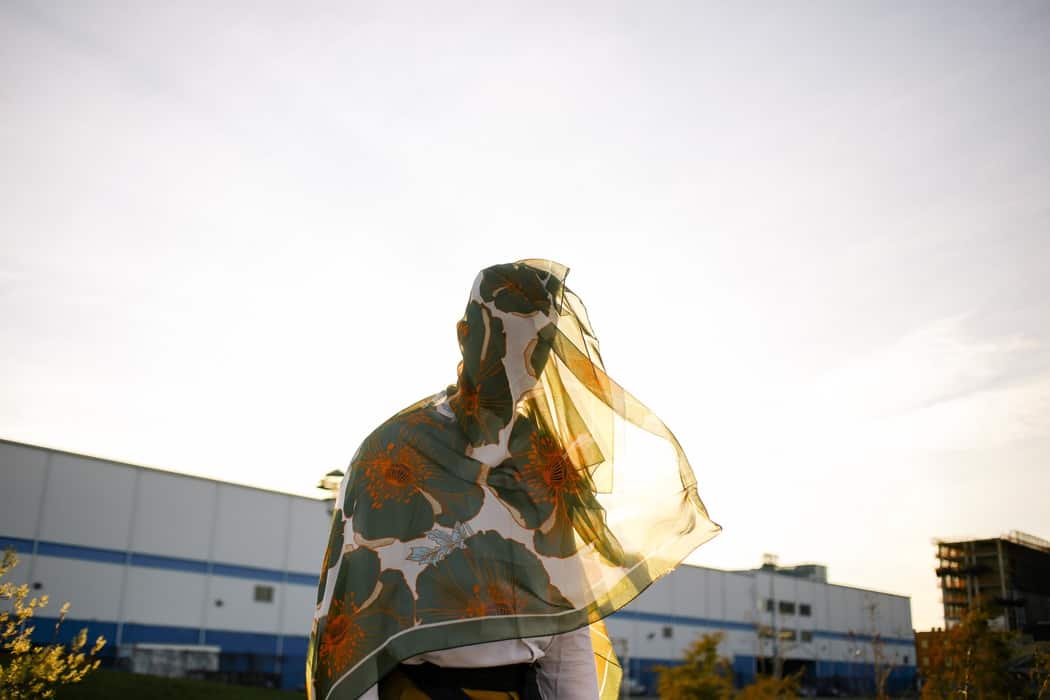Interview 066 • May 28th 2018
- Interview by Paige Mauriello, Portraits of Aundre Larrow by Ray Spears
About Aundre Larrow
On his fifteenth birthday, Aundre Larrow received a Minolta film camera from his high school theater teacher as a gift. Within 3 months, he had blown all of his money processing film filled with portraits of fast friends and loved ones. Ten years later, not much has changed. Aundre is a Brooklyn-based portrait photographer who has spent the last few years shooting editorial and lifestyle content for his clients. He most recently shot the NCAA Tournament, NY Fashion Week and a portrait project about immigration. Throughout the years, his work has always pursued the truth that can be found in portraiture and his current work as an Adobe Creative Resident is the next chapter of that.
Links
Foreword
Logical, honest, and with a relentless desire to better himself, Aundre uses portraiture not only to tell the story of his subject, but to learn from them. This drive has guided his Adobe Creative Residency project, Stories from Here, which challenges viewers to engage with stories they’d never hear had he not realized the role that listening, simply listening, plays in empathy.
This interview has been edited for clarity and content.
Interview
So after studying journalism, why’d you abandon it for commercial work?
Okay so when I was in college, I was a journalism major, but I took reporting my Sophomore year, I had it in the fall and since I was kind of an over-achiever I had a funky schedule and the only reporting lab that worked for me was the one that went from, I think, seven in the morning to ten or eleven. I was getting up really early and having to write all this stuff and I was just not into it. I used to watch the world news with my mom when I was a kid, and I would always trip about being a news anchor, I just thought it was really cool, and then I think somewhere in that time in college I just didn’t enjoy it as much.
When I started to do stuff for the college newspaper, the stuff that worked better for me was just shooting stuff or working on multimedia things. So I think after I had reporting, I think 2010 it started to grate on me. I had an internship in Chicago and it was really cool to shoot, it was an alternative weekly issue for the Chicago Reader and then I had another internship in Gainesville with the Sun and it just bummed me out, some of the other photo journalists that worked there were like, “I don’t think you should do this job man, it kind of sucks.”
No way!
Yeah, you see this point where you see these people that are talented, and it’s a couple things. A: your work is really reactionary, in a lot of ways that’s really beautiful and in a lot of ways, you’re just a slave to it. And then you saw people that had been doing the same thing forever, they’re shooting the same events every year, not getting paid a lot of money, they’re constantly getting kind of pushed around, and so, I was looking at people that I thought were…let’s say the flatline average, the quality of life wasn’t super great, and at the very peak, if I was ever lucky enough to get there, also seemed tough, you know? So, basically, when I moved to New York, my goal for the year was just to work on a photo project I really cared about, and I didn’t have a plan for what that might be, so I just shot stuff and the easier things to get a hold of were just tiny things, shooting product photos for people’s Instagrams, and honestly, once you get started in it you realize…I think that all photographers are artists, and I think there is something very difficult about being a photojournalist, you’re in a scenario and you’re literally pulling something out of chaos constantly.
Sometimes it just gets really tiring, and so, commercial work, however you define that, or even editorial outside of the specific photojournalism world all the way, you have the ability to make what you want, and to a degree you have a little bit more freedom and I think it just ends up paying more. And I grew a lot when I started to understand that my photos didn’t have to just be one thing, but I still love shooting sports which is great editorial stuff. I think about it now, we took advanced photo 1 and 2 in college, in the photojournalism department, and just all this stuff I wish they had told us, even something like being able to take headshots or be able to shoot events, isn’t like beneath you somehow, and money’s not the root of any sort of happiness, but to a degree you need money to survive. One of my good friends just moved to a different state, and she was writing for a start-up, she used to be a journalism writer, and she was like, “I’m tired of this.” so she went back to try to get a journalism job, and they like final offered her at 31k, and she was like, “what is this?” Honestly, I can’t, I literally cannot with that. So it’s just one of those things where, with the internet and access to media and photojournalism is easier, that has led to a deflation of cost, fewer advertisers, etc. and then the ones that are doing well are more opinion pieces and things like that. Photography in general, everyone wants to do it because everyone’s on their phones, but that has led us to all thinking that we can do it and are good at it. And a lot of times photojournalism isn’t about what photo’s best, it’s about what photo’s first.
Very true. So you have a very practical approach to your work.
Well I try to. I wouldn’t classify all my work as commercial or… in that true sense, where I’m not in a studio lighting really intense stuff, but commercial in a way that it’s selling a product. I think that, the thing we also have to be honest with ourselves about is that as journalism has gotten more complicated, a lot of that work has turned into commercial work. When I was an assistant at Men’s Fitness, we had pieces that were literally just like advertorials.
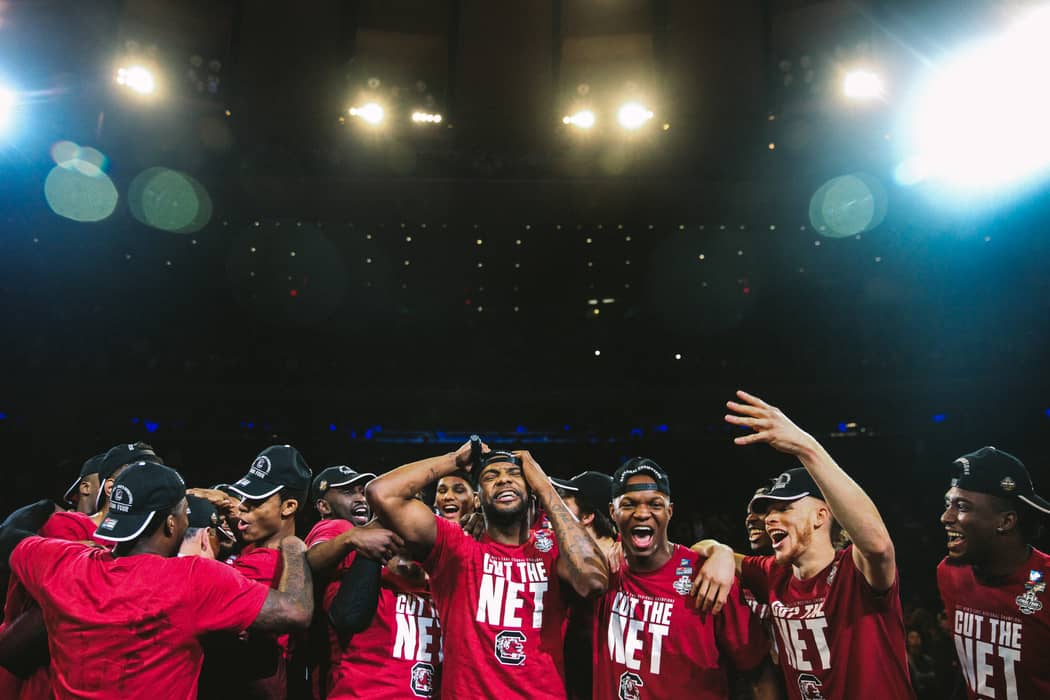
And that wasn’t something you were interested in?
I just didn’t really care. At least I have the freedom now to choose what I want to work on to a degree, I’m not saying everything I’ve done I’ve been like, “Yeaaah.” It’s a question of being practical, more stans are great and I completely agree with them, but you work on stuff, you make enough money, and you do what you gotta do.
You just said that you feel like you can do what you want now, when do you think you got to that point?
It’s two-pronged, it’s understanding how much money flies around in the creative world, just for people to tell their story or a brand’s story the way they want, and also, so you understand how much what you’re doing is worth, or you start to. And the other end of it is really starting to embrace your process. I remember I took this black and white film class in college, my freshman year, I had extra credits available and I just really wanted to take this class, it was called Art Visual Literacy, and the first photo project we did, I took portraits of people and they were pretty banal, whatever, and I remember the TA was like, “I’m not really getting a whole lot out of this portrait like what’s the point of this?” And at the time I was really annoyed, like, “how can you not, this is great, like what are you talking about?”
Yeah, hahaha!
And then, once you think about it, there wasn’t a whole lot of process respect, I was just kind of like,” okay cool! Let me take your photo real quick,” and so when I was a creative associate at Walker and Company, my creative director, Mari Sheibley, every time we had any shoot I would walk through everything with her step by step. So, every week, let’s say, I had two editorial shoots for Public Co. and one with artificial light, I’d be like, “okay here are my plans, here are my thoughts,” we’d go over stuff. That practice, for a year or two straight, was really good because then from there I knew, stepping in, it’s something as small as like, I just did this job for Samsung, and they’re like cool we’re going to pay you this much. And the money in itself, you have to ask yourself what it’s worth but if you can step in and say, I know what value this brings to you and I know how much time this takes for me, then you can come from a place or being more practical about what you want to do and what you can do. So that’s what I mean, just getting on the line of understanding, okay this takes this much time and this is what this process is worth, understanding the value of your final product to a client is important.
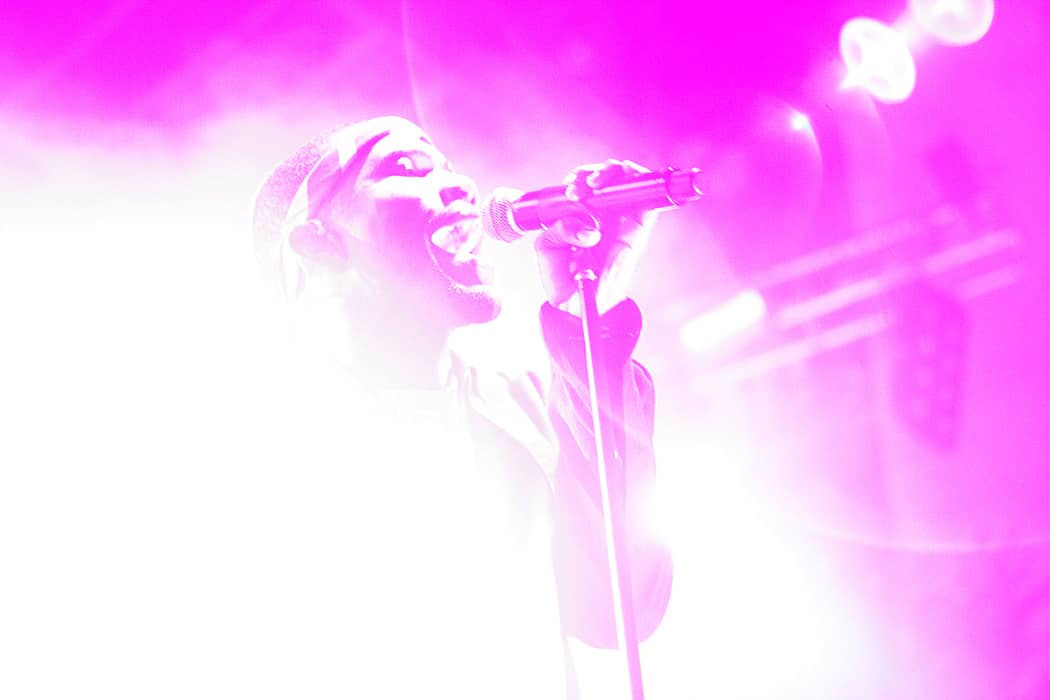
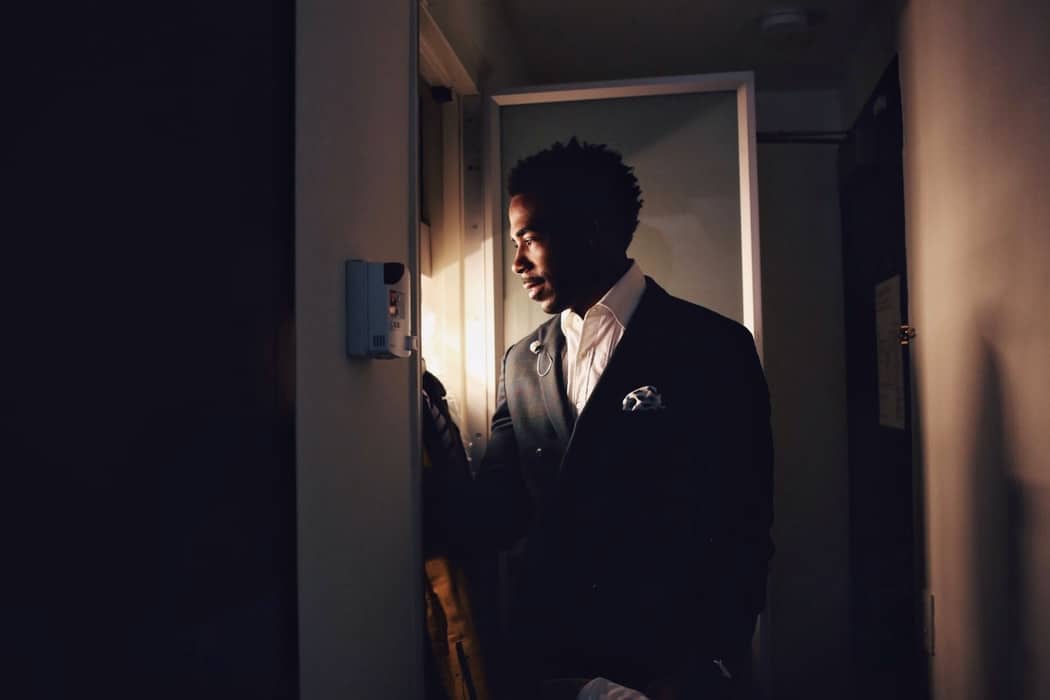
Okay, so regarding that boss, Mari, you mentioned her in a couple other interviews when I was doing my research, what does that relationship mean to you?
It was awesome, man! Mari is, it’s just fun that we’re actual friends now, I was so scared of her, hahaha.
Really! Why?
She’s just really intense, in this very comic way, she was the first designer at Foursquare. I didn’t really know a ton about her, but one of my really good friends, Quinton, had ultimate respect for her forever, so when I started working there he was like, “oh my gosh, you get to work with Mari!” But I think at that point in my life, that relationship was super-valuable, every week I was accountable to her, above any other thing that was going on, I was accountable to her. What my process was, how I executed on it, and then how I was going to better myself, she had no bones about challenging me on things. But it was good to have someone who had my best interests at heart, there were times when she would say, “this isn’t a good idea,” or like, “I think you did a good job but I don’t think you need to focus on this.” And so, when you have someone you feel you can step to, who doesn’t have any problem speaking clearly to you, but also understands every step of your process, there’s a lot of value in it. So that relationship, honestly, is a really good one for me.
She moved recently, but she had been in New York for about 10 years, and she’s exactly 10 years older than me, so I think there’s this nice understanding as to where I was mentally and just really pushing me along the point. Sometimes the process of it was more important than the end result because I feel like she was like, “I feel confident what you’re going to do, I just need to make sure you think this through.” So even if I wasn’t shooting but like working on a video, or I was writing copy, it was the same relationship, so I went from having ideas of how things could work to actually putting it into practice. Because in many ways, it wasn’t technically my first job in my life, but that was my first dive into being an actual, physical, successful creative, you know?
Yeah! And you mentioned that she helped you to think of yourself as an artist, what was that change in perspective like?
It’s a huge change in perspective because photography, in many ways, is not considered a high art, you know? There’s this thought and it’s easy to fall into. If you don’t like sculpt something or if you’re not painting, in a way drawing is also viewed this way, if you’re not creating something out of raw materials, then you’re not an artist. But I think that once you take all the steps necessary to execute your vision, then you get there. So when she would talk to me about it she would be like, “yeah, this is how you take art seriously,” just how design is really important since she’s a designer, whether that’s web, or graphic or anything like that, it’s really just a question of follow through.
So at first I thought it was kind of weird, because people talk about being an artist and you’re like, “eh, am I an artist though?” But between spending time with her and going to this artist center called We Are Nomadique and engaging with a ton of people there like Sasha Arutyunova, and Ike Edani. I think I ended up doing better for myself once I started to take it seriously. Once I started to see myself as an artist and really started taking my art seriously, going through the entire process with myself and not trying to skip anything. From mood-boarding to every step, test shoots, etc.
You’ve mentioned creative and artist, do you consider them to be the same thing?
I don’t know, I don’t think so. I think that an artist’s primary goal is to create a story and a creative’s primary goal is to solve problems with art. Does that make sense? So they can overlap, but they’re not really the same thing.
Okay, so, do you think you’ve transitioned from considering yourself a creative to considering yourself an artist?
Yeah, I think so. As a fall back, I can hopefully get paid to do things as a creative, but in a dream, it would be to work on things exclusively as an artist. That’s what my main project is about how to make art out of listening. And then, how do I make that as digestible for strangers as possible, so they can care about it and if it solved the initial reasoning of me creating the art in the first place. Does that make sense?
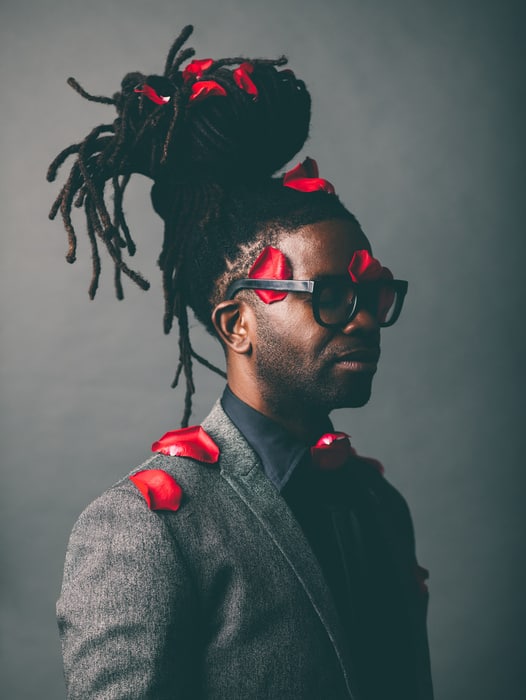
Yes, it does.
Haha, I hope so! If not, I appreciate you being kind enough and telling me, “this sounds great!”
Hahaha! No, it does. So, why talk to strangers? With your Adobe project.
Well first, because we were told not to as kids.
Hahaha! Purely rebellion.
Yes, I’m just rebelling against all those things that kept us safe. When I was in Mexico for a wedding, I was having a conversation with the bride’s dad, and her dad said when he and his wife got married, they’re both Mexican and his mother-in-law didn’t want them to get married because she didn’t like that his skin was so dark, and he talked about how difficult that was for him. That meant a lot to me because when I was in college, I was dating my best friend and her family was like, “yo, we do not like black people,” and it was really bad. “It was one of those things where, without realizing, seeing this man who was probably like 50 maybe 60 now talking about how this affected him and how upset he was, it was a reminder that not everything’s super-clear, some things are super messy, but sometimes you talk to strangers and you learn something about yourself.
Wow, yeah.
When I moved to New York, in the first year, I was watching the Ferguson riots with my roommates on my laptop, and I remember one of my roommates saying something like, “I don’t know why people would destroy their own community,” and being like what? How do you not understand this? And then just realizing that the older I’m getting, the more I feel like I don’t understand everybody.
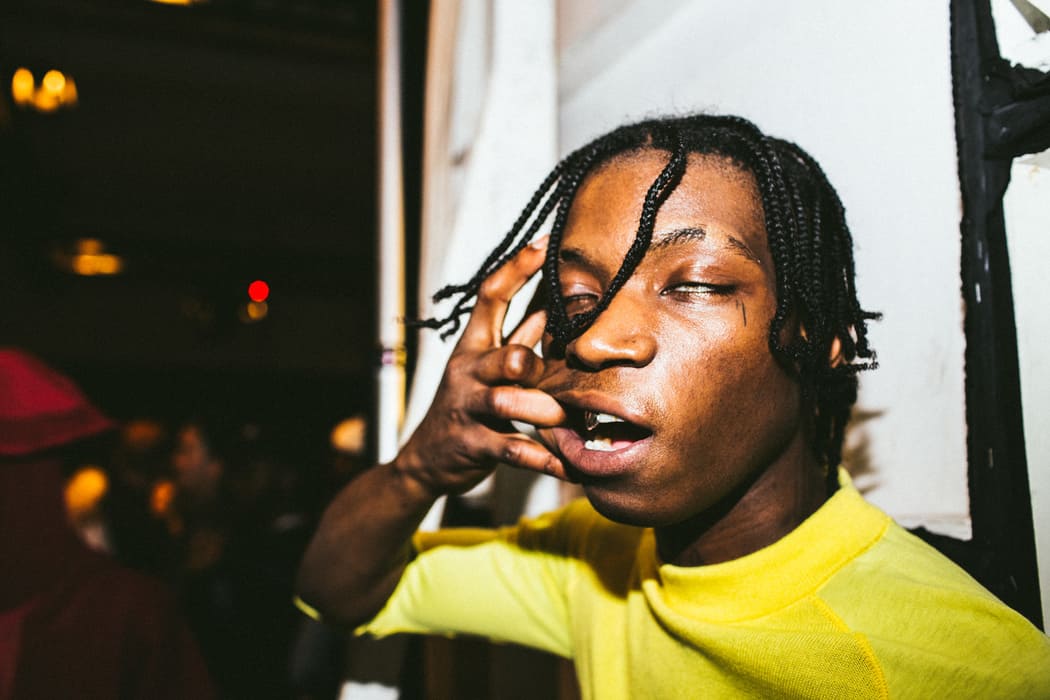
Hahaha.
And not that I need to understand everybody, but there are some things that it’s cool to disagree on, you know what I mean? At the root of it, I didn’t have the time to explain to him, in this community, people have been oppressed for this long, they don’t feel any relation to where they live, because they have no ownership of it, because they weren’t allowed to own land here, because of these laws which were born out of this which were born out of this, and it’s this chain reaction. So it was a question of, okay, what’s the biggest indicator for how we think? I had just been thinking a lot about the idea of sense of place, and instead of trying to always get a swath of strangers that were random, I decided to try to do that in a swath of places I thought were interesting, because they might have stories that could be related to. The whole project I’m trying to just ask more clarifying questions so I can get someone to drill down into their opinion of self and place, and then from there we can find things that we understand, but don’t necessarily agree with so that we can increase our, I wouldn’t even say empathy, but our likelihood of listening. Because if you choose to listen, then you are much more likely to be a productive member of society, and give a shit, which is really important.
So, you’re looking to expose something that seems really foreign to a lot of people, which is talking to people that are different than them.
Yeah, because as we get older, the likelihood of us going to places or being around people that are different than us, in even the most primary ways just gets lower and lower. When we were kids, we had to go to school with a ton of people, and then by the time we get to college we’re already socioeconomically placing ourselves outside of even the people that are poor. So we’re more likely to say things like, “well, if this person just worked harder they wouldn’t be so lazy,” and there are fewer people to keep us in check, and maybe there are people in our classes that are poor, were poor, are poor, they’re not trying to speak out because they don’t want to, A, ruin their self image, B, ruin the image their classmates have and C, make themselves look like a black sheep or a scapegoat. So, when we allow our opinions to go unchecked without a physical totem for what they represent, then we’re less likely to believe them.
So I interviewed a woman in Chicago, her name was Tanya, and she’s a professional video game player, I’m pretty sure, which is badass. She has this nonprofit about the persons in video games, which I was like, okay, what does this matter? But then she talked about how weird it is that whenever a video game has a main character, or even like a strong character that isn’t like a white dude, a lot of people freak out. And then she talked about how for her, when Chicago is used as an example for violence it really upsets her and she was talking about how it’s really just a question of poverty. So she talked about growing up, and just how long it would take her to do something as simple as going to the grocery store and get food for her mom because her mom was disabled and it’s just one of those things where, yeah I understand that in theory, but then when she says, “okay, I lived on this street, and the closest public transportation was like 40 streets north that wasn’t a bus, so something that would take someone with a car an hour, would take me three hours.” So that took her this much time, which compounded into this thing and this thing, and if someone can translate their personal story to me and I take 30% of it, I can distill like 5-10% of it, then the audience has more reason to care.
And I don’t think my project is going to stop people from being prejudiced or saying horrible things, but I think allowing yourself to go unchecked is a really huge mistake, you know? Trying to think of a better example, the stories really kind of go different ways for every person, this one woman named Dolly, a year ago her husband died in her house, so the last year had been really traumatic for her, and she talks about loss and she talks about all these specific things, and so the project’s not all about just really intense social issues, it’s about a sense of self, and I think it’s all important because she has one thing she says that really stands out to me. I asked her what the worst advice she got that year was, and she said, anyone that tried to push their worldview on her, and how difficult that was when someone would be like, “well you know, god has a reason for everything,” and she’s like, “what if I don’t believe in god?” And that might not be this huge revolutionary thing, but a way to be a better human is to understand the perspective of other humans. So, when she said it I thought it was really interesting. I don’t think I’ve ever said that to anybody, but I think that understanding the dangerous things about saying that to someone whose love of their life had just died in front of them, maybe not the best idea.
Definitely, so then do you think you’ve always had this desire to talk to strangers, or do you think you just started to develop this recently? That desire to understand other people.
I just feel like it’s something I have to do right now. There will be other times for things, but right now I personally felt like I didn’t understand the people around me well enough, and so I need to do a better job of listening to them. When I was a kid my mom would always be worried that I would totally get kidnapped, because I talked to strangers all the time.
Hahaha.
Hahaha, which sounds like a nightmare now that I’ve had to babysit any child. I really enjoyed talking to strangers as a kid, and then you get to this point and you start to have actual things to do and just somehow everyone that isn’t directly on your path to what you want to do is all the sudden annoying to you.
Hahaha!
Which is weird but it’s totally a thing, that sort of autonomy, and then it’s just like weird because just strangers are irritating or they’re in your way, or whatever it is. And so, this was more my opportunity to get back to that childhood Aundre where I can be excited about talking to people and then make something out of it. If nothing else, I wanted to look back on the site and the work and and say, “okay, I’m proud of this because it talked about this thing that was really important.” I think, if nothing else, it’ll give me a better example to speak on stuff in the future, but the important residual effect of anyone that reads it will leave feeling, like generally I hope if someone reads it they immediately think of someone or something that they can show empathy toward, like you read someones story and can be like, this reminds me of this thing, small or big.
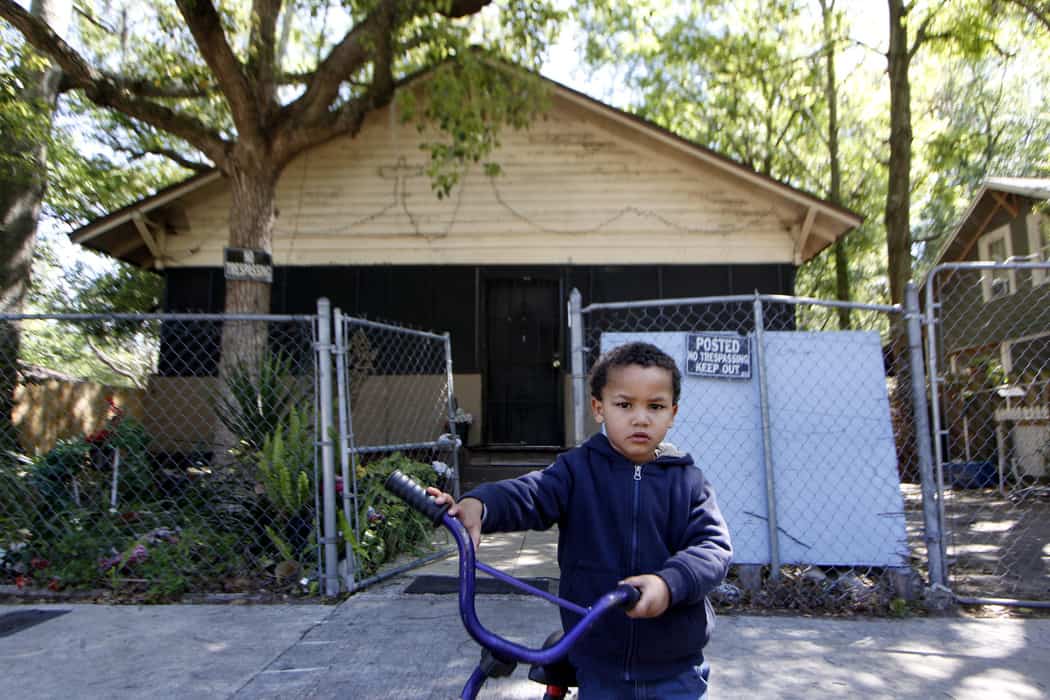
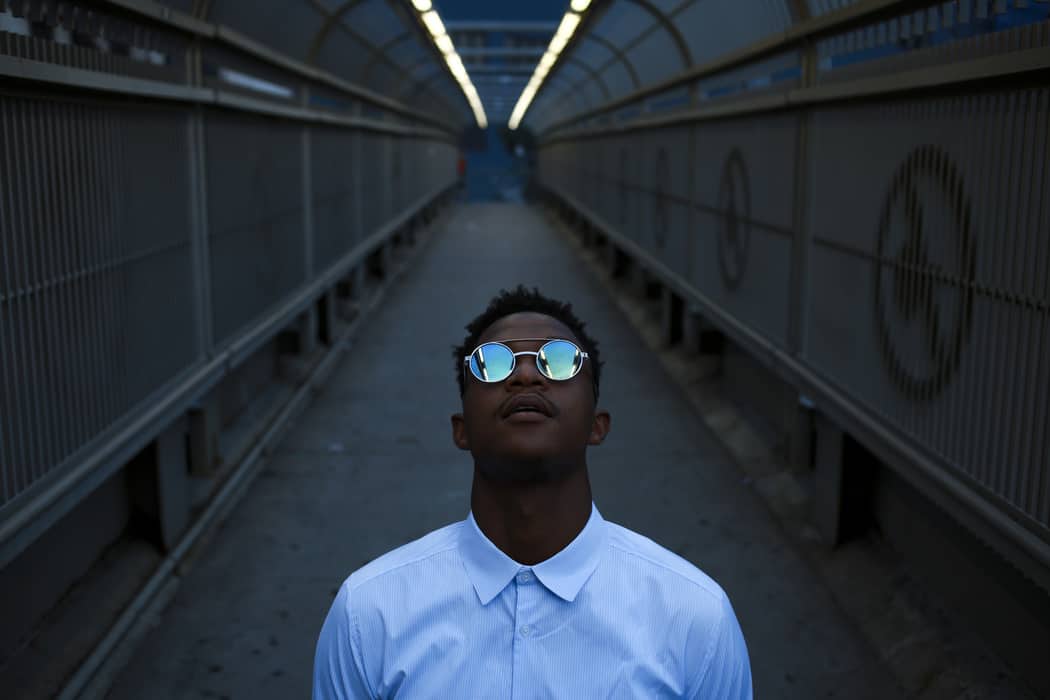
Okay, and do you feel like all that communication with all those different people is going to affect your work going forward?
Yeah, I think so. I think every couple years or so, every photographer for example, your work has to change, you know? And I like to think my work feels really honest, and doesn’t feel like that much of a departure from reality, you know?
That’s funny, I have in my notes from before the interview, “refreshingly humanistic and honest,” to describe your work.
Paige, I’m going to pay you to be my agent someday.
Hahaha!
People are going to be like, hey man what’s up! I’ll be like yo, talk to Paige.
Hahaha!
Yeah, so I think this is one of those things where it’s going to be better for me. This will make me a better photographer because I am flexing the skill of listening and paying attention to people, in a way that I didn’t always necessarily have to.
And at the end of the day, it’s not a secret, you can make better art when your subjects feel invested. So, I think that when this is over I will look back and see a ton of portraits I’m proud of, and that might give me some rose-tinted glasses. Might make me look at it a little more positively, but I think that looking back at it, it is allowing me to tap into the journalism that I loved in a different way. Because, at the end of the day there still are some stories told and that is a success, if that makes sense.
Definitely, okay. Do you think the honesty in your work is something you always strive for?
I just want my stuff to look good and if I feel like I can’t, sometimes it’s how a person looks when you shoot them or what the shot feels like, but I just am always…it’s just a look and feel, you know? Sometimes it’s heavy, sometimes it’s light. It’s really how you kind of mix the light and the personality of the person but I think that’s honestly super-important. Have you read Camera Lucida?
I have not.
He talks about this concept of a photograph being, I know I’m not quoting this exactly, but a photograph is tethered to reality, right? Then if you take a portrait of somebody, and it’s not an accurate one, then it’s completely a lie and it’s nothing. Which is super-intense and heavy, but in the same way if you capture that person’s essence, then it’s frozen forever and there’s a beauty in that. I just think it’s cool, I think I’m just always trying to capture what that person is like.
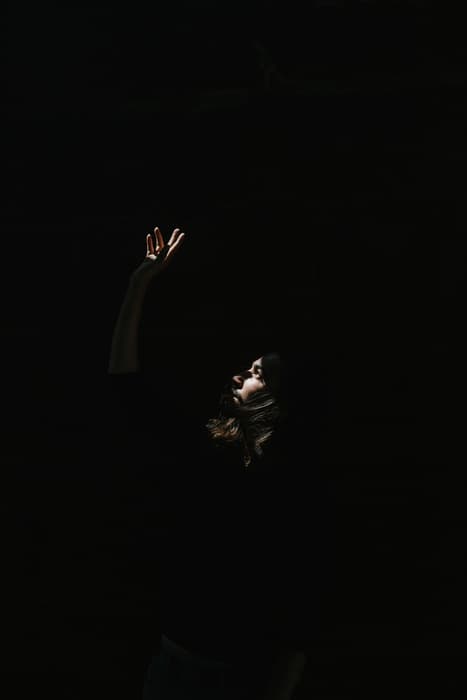
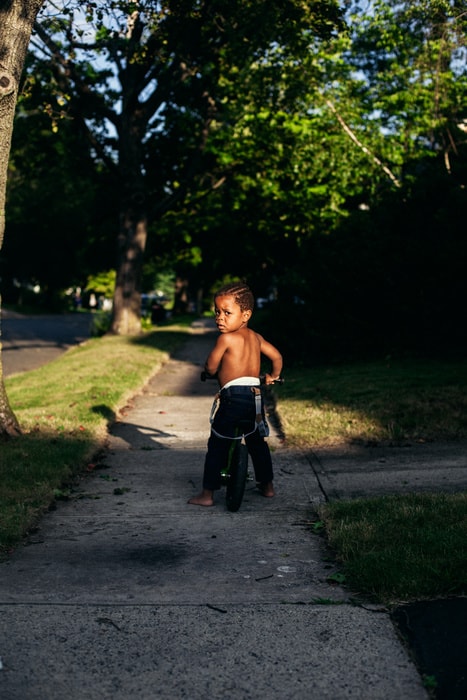
How do you do that?
You listen, you shoot a good amount, you watch how they are. When shooting commercial stuff, not really, because your goal is to make the brand look cool, but other times you can show complexity, you know? Even if I don’t do photography or commercial photography, editorial photography full-time forever, I think I’ll always have the responsibility to capture in-between moments because that’s the stuff that humanity and your life is made of. If you’re shooting sports you’re not always going to be a champion, in fact most great sports photos in my opinion are of teams that are losing.
Why’s that?
Because you see this rule of notion and generally we hold back how we feel, outside of the in-between moments when people capture us, until we’re in a moment when it kind of just all bubbles over. But yeah, it gets better through patience, which I’m trying to get better at. But also, it just comes from a desire to continue to see what we’re like and how we feel, because you don’t want to feel like a crazy person when you’re like, “why am I feeling like this?” and you’re like, “oh, other people feel this way, cool!”
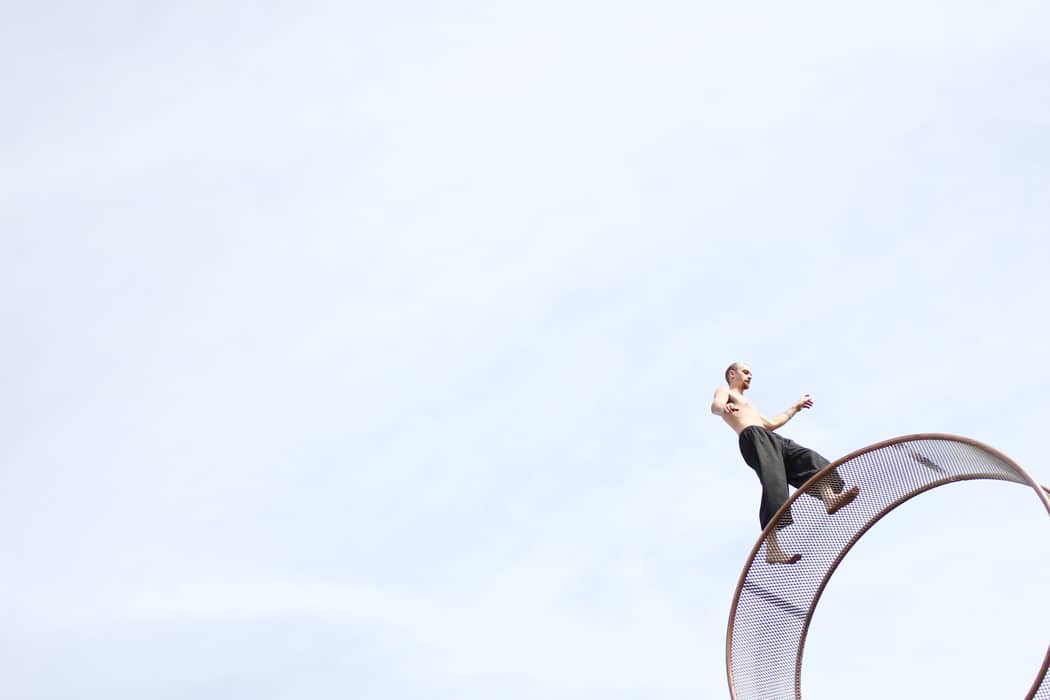
And you’ve said in other interviews that your mom encouraged you to do art from a young age, why do you think she did that?
My mom is a fascinating person because she’s so practical, but I think it’s interesting because I did drama in high school, I was in several plays, and usually she’d be like, “you need to go to college and be an adult and get a good job,” but she was like, “actually, if you want to school and study acting you totally could.” And I was like, “what? You joking?” I just thought it was funny because she is like, she’s just interesting. She’s worked really hard, and that’s a thing that motivates me a lot, to try and honor my mom’s sacrifice, we’ve talked a lot since she’s been home. I was born and my mom had to leave me in Jamaica from like when I was one and a half to when I was two and a half, maybe three, and how much that weighed on her. And so, she’s done a lot of things for me to have the confidence I have and be where I am, but in the same way I think she doesn’t fully understand what I do, now. But I think just the way she supported me was she made me do a lot of stuff. Her favorite word is exposure, so when I was a kid, in the summer I’d take a six week drawing class, or like she was very pro-me doing drama, she paid for me to take saxophone lessons, and keyboard lessons, so I have several instruments under my bed that all had a three year time span. And I think for her it was always the question of how you round yourself out as a human, we talked a lot about how her younger brother, my Uncle Michael, when was they were kids in Jamaica, and he would just draw beautiful stuff and before he had a drum set he would play anything on everything, or how they used to play all these games when they were kids he would make stuff out of wood and they would play with it. And I think for her it always stood out as, “I need to make sure you’re super rounded,” and I think now she’s just happy that I have something that I like and that I can pay for stuff and not be dead.
Hahaha. So why do you use the descriptors that you do on Stories From Here? Like “feminist, artist”, etc.
So when I lay out the stories, I actually think the weakest part of the layout are the descriptors and the warm-up paragraph, and I think that because it’s where I inject myself in, and every single interview I ask someone what the key parts of their identity are, and I leave those at the top. Because besides the photo I want someone to look at this and be like, “oh I might understand this,” or, “I don’t know anything about this,” or, “I totally want to feel this way.” It’s really just a question of finding some descriptor that people might find interesting, so I just take whatever the top three piece of identity people give me and I put them in and then for the opening paragraph. I just try to remember the scene of what it was like, and just try to have someone walk into, like mentally be where I was before the interview starts. Because I think, in that way, when you’re prepared for it, you’re more likely to receive whatever truth that person is sharing, even if you don’t necessarily agree with it. If you have some sense of what they’re like between the descriptors, the video, and the warm-up I think it primes you for really listening.
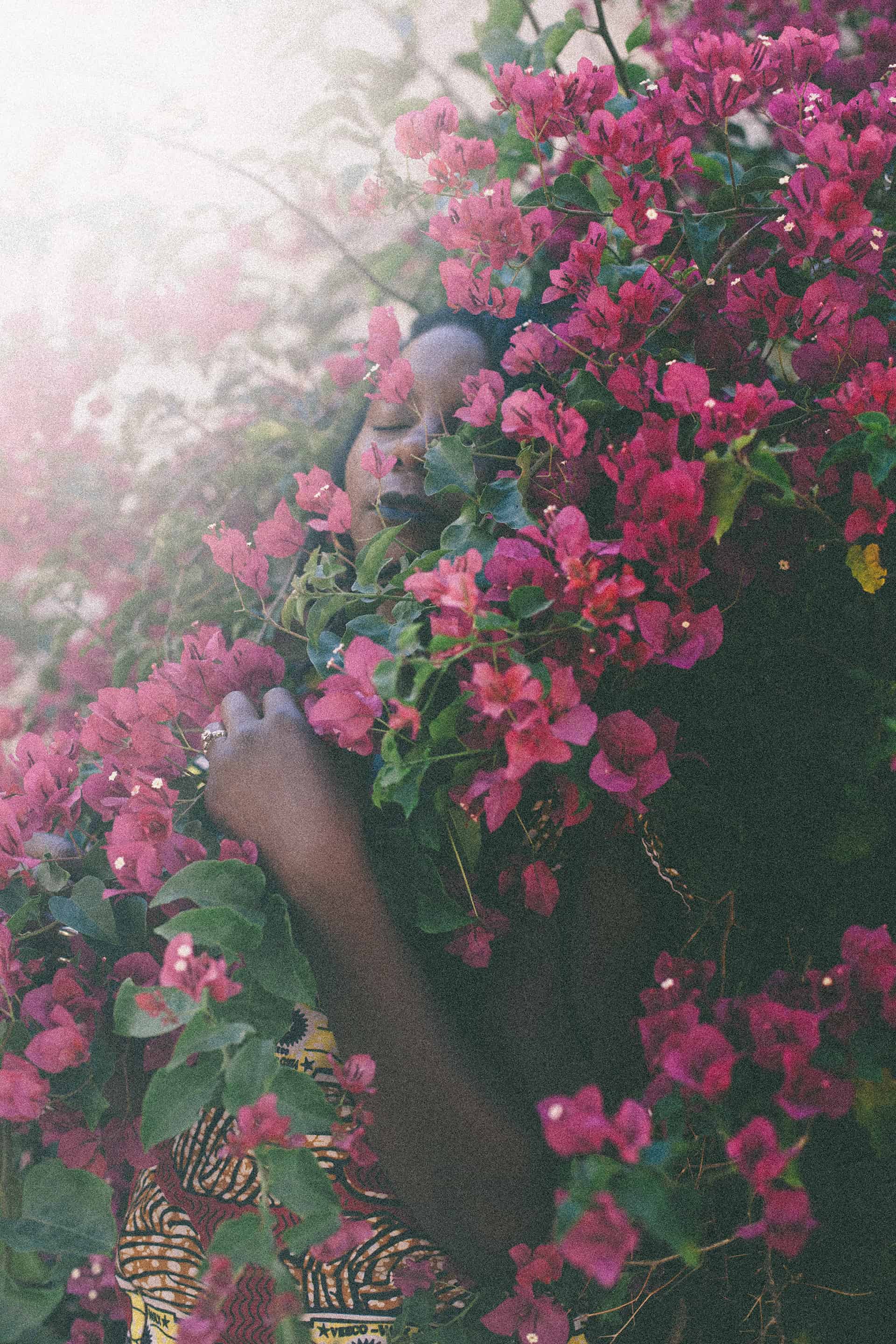
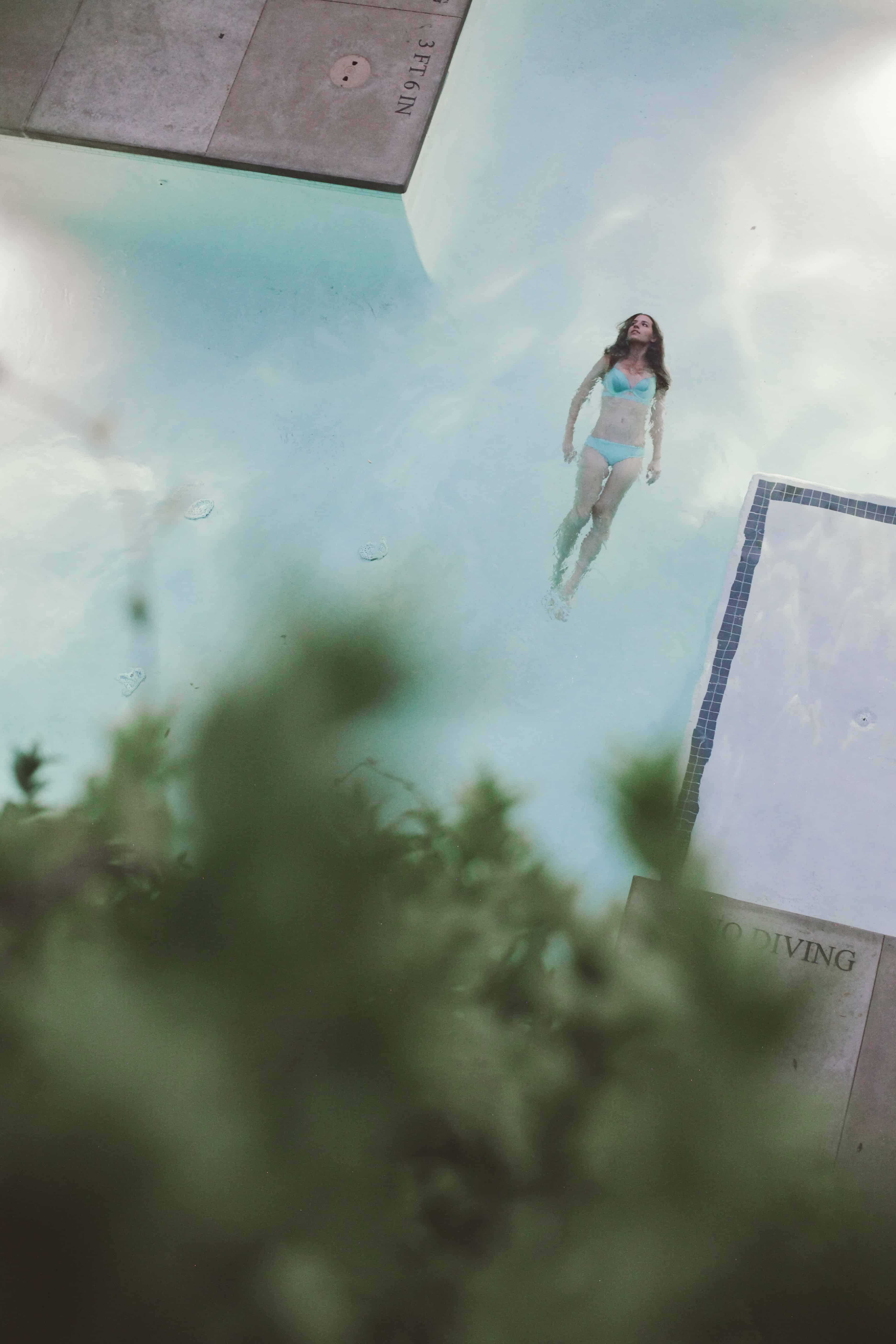
Wow, okay. How do you think you came to that conclusion, that your viewers of the site would only be able to fully empathize if they get a taste first what it’s going to be?
Because they’re strangers, right? So, thinking about the people that are likely to come to the page, people that I know, people that come in from Adobe stuff, people that come in from interview stuff, people that are on the internet too much and just find it, hahaha.
Hahaha, the best people.
Or people that know these people and decide to look at another interview beside that one, right? If you think about it, people only really read interviews when they think they’re going to learn about someone they either know, or someone that is famous and they want to take something from.
That they can relate to.
Yeah, you don’t have any sense of context. So I was like, how can I try to provide some sense of context for people and I didn’t really focus group or anything, I just kind of did it. And then I honestly don’t remember, I’m sure there was a specific reason, but I just did it because I thought it made sense. I just did a critique with my Adobe mentor, Matthew, he told me about some tweaks to the site to make it flow better, but my intention was for it to make people have a quick sprint into the person, so you’re more likely to read it.
Okay, yeah. I like how you said you chose them based on what they said about their identity, instead of what you took from it or how they present themselves online.
Well, I mean I can’t, there are people that I would say like, “hey I wrote this, what do you think about that?” If I thought it was maybe kind of dicey, or I wasn’t sure how they’d receive it, I wanted to make sure they’re cool with the descriptor before it goes out. And I always show the person the interview before just because you just don’t want people to be upset about how they’re portrayed, but at the same time I really challenge them not to ask me to change a bunch of stuff, just because I don’t think that’s realistic, I think for the most part you speak your truth and then you kind of live with that. Yeah, I mean it’s just one of those things where I show it to them and they’re generally fine with it because it’s what they said and they sounded like and it comes out in the recording, so.
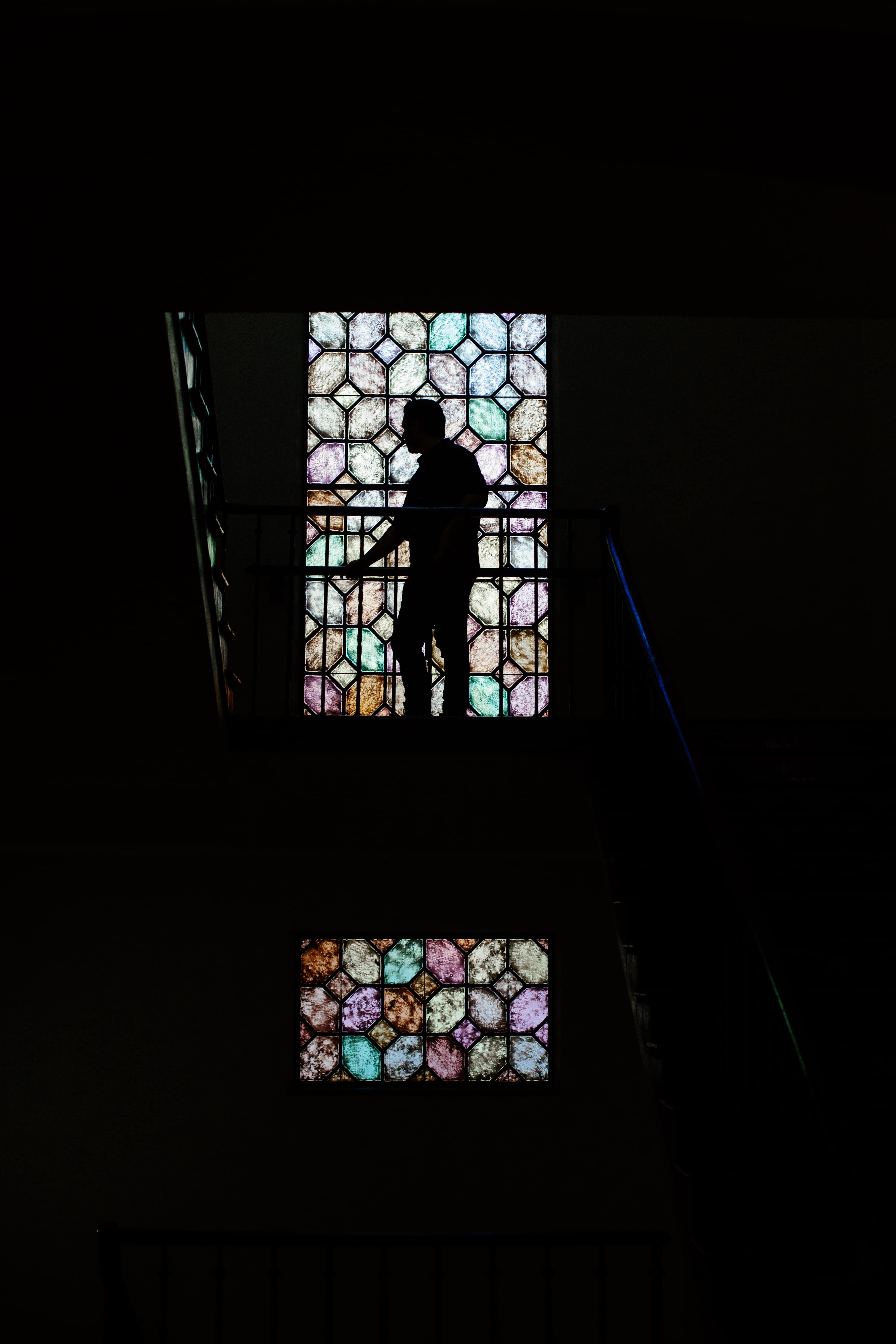
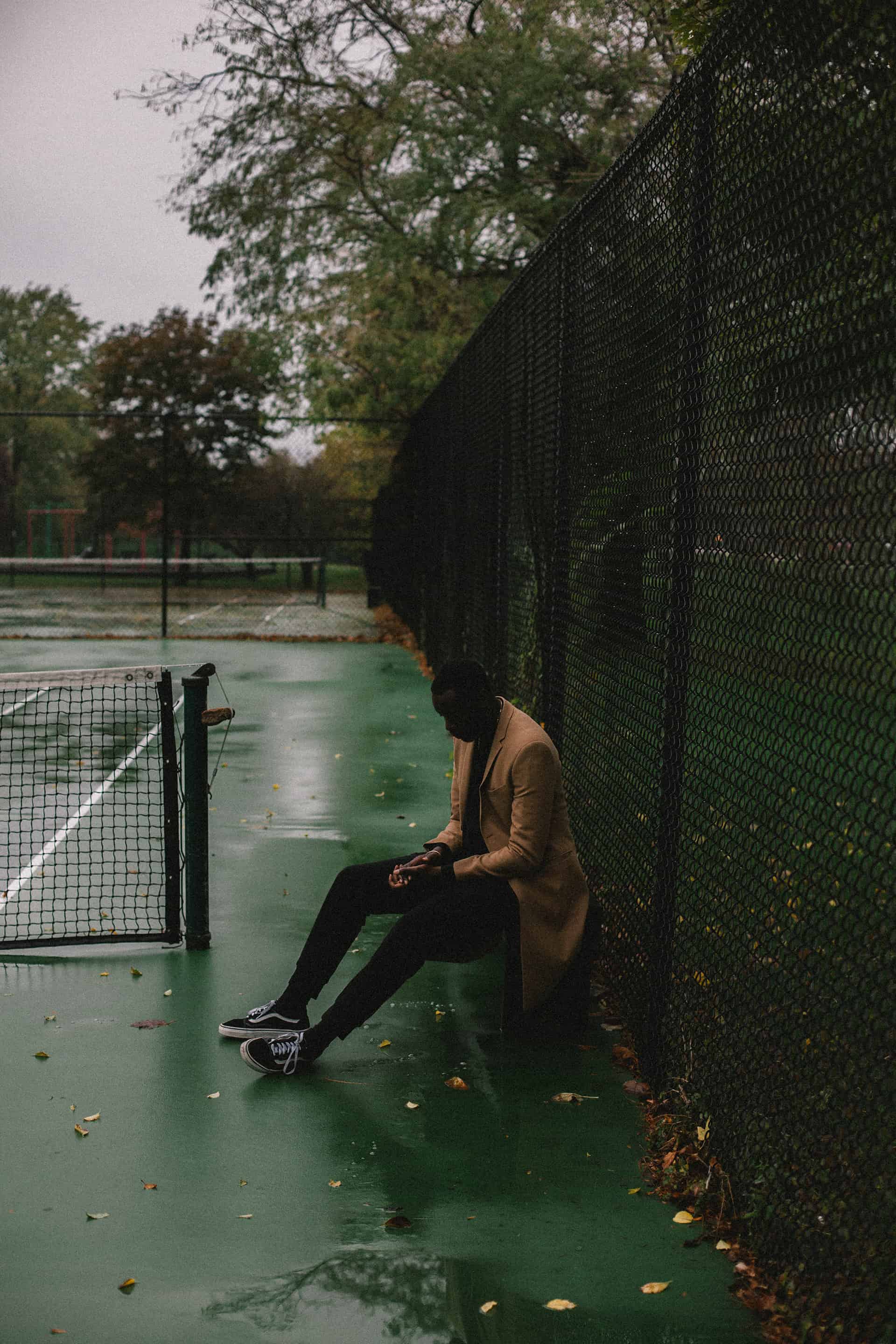
Yeah, it’s true. So, during my research (again), whenever people ask you what advice you’d give, you often say don’t be hard on yourself. Is that because you are?
Oh, totally. I have super-unrealistic expectations for myself.
Really, how’s that?
Yeah, 100%, I’m a crazy person! Anything remotely bad happens I’m furious. I should have just done better, I didn’t shoot this well enough, how dare me. And it’s difficult because it’s a question of how you give yourself perspective and it’s also a question of what’s important. If I say I value being an artist then I have to value learning, I can’t just value results. My absolute favorite commercial of all time, super-weird, it’s this Red Bull commercial, never had Red Bull in my life, where Blake Griffin talks about growing up as a basketball player and he says two things, he says, “other people can’t measure how much heart you have, or how much you’re willing to fight for something,” and at the very end he said, “my college coach used to always tell me, you need to fall in love with the process of becoming great.” And in my mind, this translates as not becoming great in this idyllic sense like tomorrow everyone’s going to be like, “man I love this guy’s photography it’s in my house”! Because that’s not going to happen, it’s just super-unrealistic. But I think that I’m super hard on myself because I want to make really awesome, memorable stuff and sometimes that’s just not going to happen. So I always say don’t be hard on yourself because if one person takes it seriously, or takes that piece of advice seriously 10% of the time, than they’re more likely to just be a little bit happier. Being hard on yourself just promotes anxiety which promotes you not sleeping well which promotes your art being worse, so yeah.
When do you think you came to terms with the fact that you are hard on yourself and you need to work on it?
For a long time I would tell myself that I didn’t really care, you know? Like I just kind of acted like whatever, it’s whatever. But there are certain times when I work on something, and I didn’t do my best, and you’d see it and it’d really bother me, or I worked with a client and at first I’d be like whatever, I did what I was supposed to do, and then I realize later the idea of that bothers me like I didn’t communicate well enough with them to get what I needed, or I didn’t shoot in a way that was good.
But once I get past that and realize I’m upset with myself because I didn’t execute the way I wanted to, then there’s a certain amount of healthiness that comes out of that where you can say, “okay I didn’t do as good of a job as I could have, but after that it’s a question of not letting that turn into repeat anxiety, you know?” So, I don’t know exactly when I found out I was being hard on myself I think I always knew but I kind of used to mask it in apathy before but I think when the stakes got bigger it was harder to deny it like it didn’t exist.
Why do you think you originally wanted to mask it in apathy?
Because if you give a shit a lot it’s exhausting, and if you act like you don’t care it’s so much cooler. When you act like you don’t care and you still get cool stuff because then it’s like whatever, but if you care all the time, then it’s not a shock that you get stuff but at the same time, like what does it matter if I care? The results are important, so I need to just do them. I think masking in apathy is a defense mechanism to not be accountable to the results.
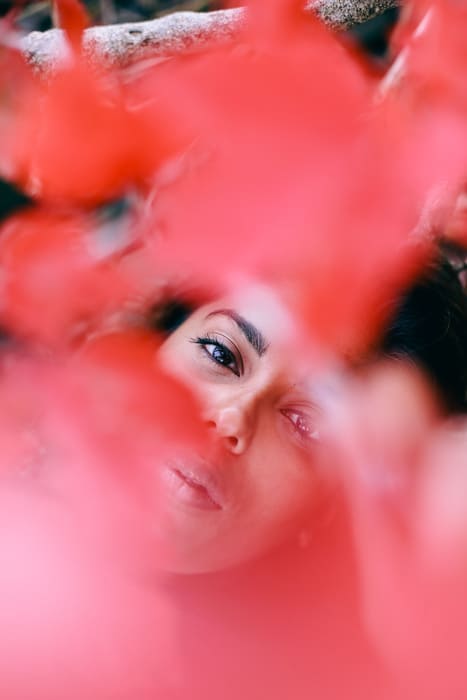
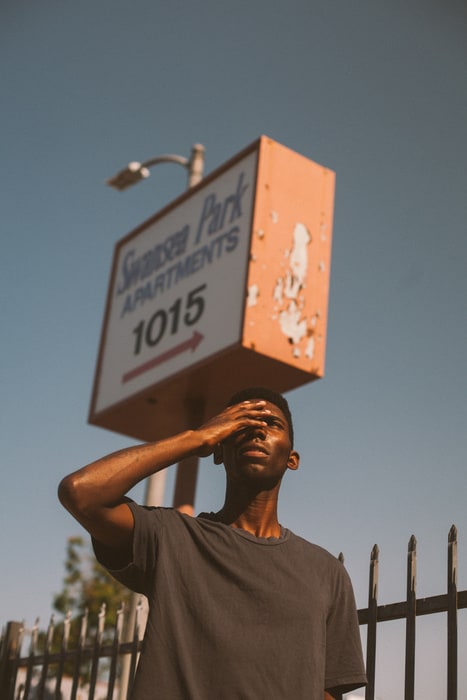
Yeah, okay. So where do you see your career heading after the residency?
After the residency, honestly, I don’t know. This residency has been so weird and cool and strange, I got a DM three weeks ago from the design lead at the mayor’s office in New York, and she’s like, “oh, can we sit down and talk about working together to make some stuff to like, show better imagery of how diverse New Yorkers are and that storytelling stuff,” and I was like, “what? Yes!” But I have sooo many questions, hahaha.
Hahaha!
Like how did we get here? I think it’s going to be two things, I think that for now, going forward there are a lot of things I need to do to be a better commercial photographer, I need to shoot groups, I need to establish better controlled lighting, in terms of like a swath of skill. But then the other side, I think I’m going to hopefully ascend into more complex commercial photography, not in terms of this editorial being bad, but into a more kind of honest, bare bones style that would be probably more for what the mayor’s office wants, that’s really focused in just the reality of the situation. I think that it’s good for me because I think those two things are important, being able to capture moments and scenes honestly and people honestly, and then also being able to achieve a complex photographic vision for something.
One of my goals this year is to just do a lot more test shoots, because I just need to practice. I need to really inundate myself with as many different styles as I can. I think the last time I really, really got to do it before the residency was last year I did fashion week with Tumblr and it was really fun, each day I was there I tried a different style, so the first day was straight up, regular Aundre and the second day I tried to do that like really, and I say this because I can’t think of another person, but he sucks, Terry Richardson like really aggressive flash, and I thought I was going to hate it but it honestly was like pretty cool. Getting back to that is really important because now I have to show a bigger range of things.
Yeah.
Matthew, one of my mentors and I had a long talk the other day, where I told him about trying to find something I can do part-time so that I wouldn’t have to stress myself exclusively for money stuff, and he was like, “look man, you really have to ride your wave, it’s here, you’re in it, and I just think it’s foolish for you to clip yourself based on a fear of what’s going to happen.” And when he said it I was kind of like, “yeah whatever.” And then I sat and thought about it and I was like, “okay, you’re right.” So it was one of those things I thought was really interesting because, his wisdom as someone who’s owned a small business and has done every version of work is that like you can’t rush your success but you also you shouldn’t short change it out of fear.
Totally, I love it.
